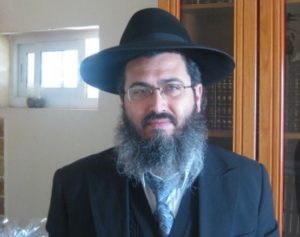
The book of Leviticus opens with the sacrificial affair and teaches us exactly how to make various sacrifices before G-d and why. The Torah teaches us that atonement can be accomplished for sins committed by us by sacrifice, but does not teach us how by offering sacrifice we will attain atonement for G-d for sins committed in dishonor besides denial of finances such as escrow or escort or robbery or libel. And what about all the other sins that a person has wronged, that is to say, first of all the other Torah commandments? The case only teaches us how a single person from Israel or the priest or the president of the tribe or the Jewish community who wrongly sinned can obtain atonement from G-d through sacrifice, while we have the question as to how we as the public or the only person aton for transgressions, sins and crimes committed by us can be blamed ? Would the transgressions have been a kind if the Torah had not provided a solution? Does not a single person or the public have atone for atrocities at all?
See verses:
“And to Moses, and G-d spoke unto him from the tent of the LORD, saying, Speak unto the children of Israel, and say unto them a man, that ye shall sacrifice unto you the LORD of the cattle, and of the flock shall sacrifice your sacrifice: if our sacrifice came from the cattle, an innocent male shall sacrifice unto the door of his tent. Before the Lord: And put his hand on the head of the Ascendant, and would like to atone for him. “
(Leviticus chapter 1 verses 1-4)
Of these verses that open the case we do not yet know what sins are involved and it could be said that since the Torah did not divide between types of transgressions, then maybe transgressions are also included, but the other case verses in which there is individual and private reference to the individual, the priest, the president and the public who have actually sinned It is no longer possible to interpret the first verses of the affair because they also refer to malicious transgressions.
The episode goes on, adding and teaching us this time, how the priest (the anointing in the anointing oil) who has wrongly sinned can attain atonement for his sins and writes:
“And the Lord spake unto Moses, saying, Speak unto the children of Israel, to say in error, that they will inadvertently sin of the commandment of the Lord, which will not make, and make one pleasurable: if the priest the Messiah sin for the guilt of the people, and sacrifice for his sin, which he sinned against,
(Leviticus chapter 4 verses 1-3)
And again in the next chapter, the Torah teaches us what “the Jewish community” should do if “the entire Jewish community” has inadvertently sinned, how the entire Jewish community will atone for their sin through the sacrifice system and say:
“And if all the congregation of Israel catch and disappear nothing in the eyes of the public, and do one of the commandments of the Lord, which they will not make and blame: The bull before the Lord “(Leviticus chapter 4 verses 3: 3)…
